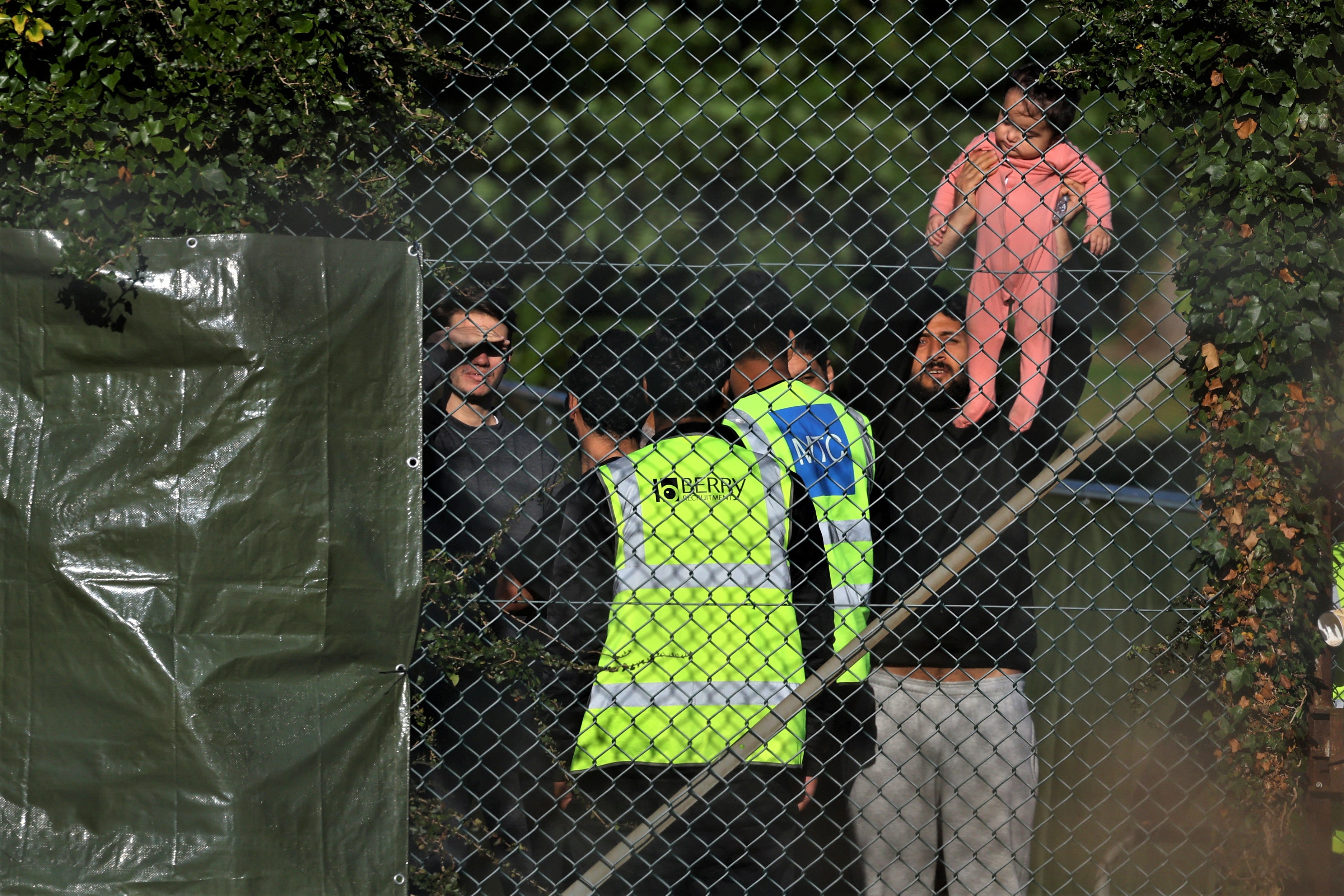Shabana Mahmood has said the Home Office is “not yet fit for purpose” after a secret report found that it was dysfunctional, detached from reality and beset by a “culture of defeatism” on immigration.
The home secretary said the department had been “set up to fail” and that the findings of the report were all too familiar. She promised to radically overhaul its staff, structures and culture.
The department had attempted for more than two years to keep secret the highly critical report, written by the former Home Office special adviser Nick Timothy. It was released only after a legal challenge by The Times.
He identified a catalogue of failings across the department, which had exacerbated the small boats crisis and left ministers unable to implement their own policies. Immigration enforcement officers, responsible for deporting illegal migrants, viewed their high failure rates as “unavoidable in the system”.
He found an overly “defensive approach” among the Home Office’s lawyers, a reluctance by senior officials to tell “difficult truths” to ministers, an optimism bias that led to wildly inaccurate financial forecasting and a general distrust by other departments that was directly hampering operational issues such as deportations.
Timothy, a special adviser to Theresa May as home secretary and her chief of staff as prime minister until 2017, has been a Tory MP since the general election last year. He was given access to the department and officials during a two-month review of its effectiveness in 2023, and said “too much time is wasted” on identity politics and social issues. That included “listening circles” in working hours in which civil servants met to discuss their feelings about social and political issues, including policies they were responsible for implementing.
Mahmood said the findings exposed how the department had still not learnt the lessons of almost 20 years ago when her predecessor John Reid, now Lord Reid of Cardowan, branded the department “not fit for purpose” after a surge in immigration and a series of IT scandals.
She told The Times: “This report, written under the last government, is damning. To those who have encountered the Home Office in recent years, the revelations are all too familiar. The Home Office is not yet fit for purpose and has been set up for failure. As this report shows, the last Conservative government knew this but failed to do anything about it. Things are now changing. I will work with the new permanent secretary to transform the Home Office so that it delivers for this country.”
Here are the key findings of the 26-page report.
‘Confused system’
The report lays out in stark detail that the immigration system consisted of “several confused and conflicting systems working to contradictory ends” and that as a result “the enforcement of immigration laws is poor and has grown considerably worse in recent years.”

Migrants are followed by a police vehicle during an attempt to board a small boat in Gravelines, northern France
GARETH FULLER/PA
It warned that the “hand-offs between immigration enforcement and other parts of the immigration system are poor, as are the hand-offs with the police and criminal justice system”.
In a particularly striking finding, the report said: “There is a culture of defeatism among officers and a sense that high failure rates are an unavoidable fact of life in the system.”
The Home Office’s lawyers were criticised for taking an overly “defensive approach”, with “assessments of likely legal challenge, and even the possibility of defeat” used “as a reason not to do something”. Poor legal work was undermining cases, with immigration decisions being “quashed by the court on the grounds that they contained errors caused by poor processes and flawed reasoning”.
Timothy said in the report: “Nobody knows who, overall, is responsible for the system.” One official told him: “Ask what is going on and you get multiple different spreadsheets from multiple people.” Another said: “It takes a team of people weeks to answer a straightforward question.” The level of dysfunction in the department was highlighted, he said, by councils who reported “receiving calls from three different parts of the Home Office about the same issue.” In other cases “Home Office officials have made bids for accommodation at the same sites as contractors operating on behalf of the department”.
He found that “too little planning to prepare fully for the number of migrants arriving if the crossings continued” would probably result in accommodation shortages persisting.
Failure to properly brief ministers
The report detailed mutual distrust between the Home Office and other departments, which hampered its ability to enforce deportations. After the Windrush scandal the Department of Health and Department for Work and Pensions had been “particularly uncooperative”, officials said.
Home Office officials, in turn, presented its proposals to other departments as a “fait accompli”.
The report found that in key areas officials routinely briefed ministers at the last minute on matters that required immediate decisions, without all the needed content and context. This failure “prevents ministers from taking the time to consider alternative assessments or options” with civil servants rarely being disciplined for this.
Departmental record keeping was woefully inadequate, the report said. Officials were often forced to “rely on memory” to find key information. Some officials in the immigration system were reduced to tracking cases on Excel spreadsheets, before these were replaced by an even more difficult to use system.
‘Bringing your whole self to work’
The report said “too much time is wasted” on identity politics and social issues, with staff spending work hours in “listening circles” to discuss their feelings about social and political issues.
Timothy was surprised at what one official called the fashion of “bringing your whole self to work”. He warned that this culture was “counterproductive, contrary to the spirit of impartiality in the civil service and divisive for those officials who feel unable to challenge the opinions of more strident colleagues”.
He warned of an unhealthy culture of junior members of staff dictating the actions of senior officials.
The culture of the Home Office officials working with other departments was also criticised. One official told Timothy: “Our habit is to seek to do things to others, rather than include them.”
Mahmood’s team said this finding was particularly alarming. A source close to the home secretary said: “When Shabana entered the Home Office, she told staff to bring their “A-game” to work, not their “whole selves”. She will ensure this department is focused on delivering for the public. And she will give short shrift to any time and taxpayer money wasted on self-indulgent talking shops.”
Detached from reality
The picture painted is one of a disjointed department with immigration officials “without sufficient appreciation of the operational reality” often “falsely reassuring” the prime minister and home secretary, “skewing” decision-making and leading to avoidable crises.
“Senior officials often know too little about the operational reality to adequately inform and advise ministers,” the report said, and ministers were not given sufficient access to frontline staff who understand the operational reality. “In turn ministers find it difficult to trust the system to do the things it says it will. Officials then overcompensate by not wishing to tell difficult truths or by providing advice that is overly optimistic, compounding the problem with trust,” it added. This “feedback loop” made success “far less likely”, Timothy said.
The report highlighted the 2022 crisis at Manston detention camp which became dangerously overcrowded after Home Office errors as a case study of these failures at work. In that case “fatally overoptimistic” forecasts of how many migrants the camp could process led to a crisis that “blew up” because of a lack of onward accommodation.

Manston detention centre in 2022
HANNAH MCKAY/REUTERS
Working from home during crisis
Timothy raised serious concerns about office attendance, highlighting that even during the “hottest of Home Office crises” key officials continued to work from home, causing frustration among ministers.
Officials refused to give him data on attendance rates and productivity trends.
Even where they did attend the office, senior officials spent much of their time in the Home Office headquarters in Whitehall “rather than among their teams in operational centres such as Croydon, Sheffield and Liverpool”.
Operational staff were “undervalued and neglected,” the report said. It found that while a “grade six official” at headquarters on a salary of about £70,000 “might lead a small team working on policy that is neither a ministerial priority nor subject to significant change”, an equivalent Border Force official was “responsible for all passenger operations at Heathrow airport”.
He described the department’s policy that staff should attend the workplace at least 40 per cent of the time as “unambitious”. It is understood that this has since improved but has not met the civil service target of 60 per cent.
‘Dangerous place’ where ‘lots goes wrong’
Part of the issue with building an effective department had been the aversion of civil servants to join its ranks.
Certain parts of the Home Office, especially those working on immigration, were perceived to be a “risk” to their careers.
“They see the migration and borders group as a dangerous place in which to work with lots that goes wrong and plenty of scrutiny,” the report said.
Others had a lack of interest in the roles for ethical reasons: “they disagree with either the principle of immigration control or the policies needed to achieve it”.
The controversies the department has faced meant for staff working there, “morale is sometimes lower than it should be”.
Two-year transparency battle
Even two and a half years after it was written, the structural issues the Timothy report identifies in the Home Office still ring true.
The Times exclusively obtained the document after a battle through the courts that has taken more than two years. The judgment revealed the secrecy in which the report was kept, raising concerns about how effectively the recommendations of the report were disseminated to senior leaders in the department.
“Tom Mottershead (former principal private secretary of the department) kept a hard copy of the report in a private locked cabinet,” it read. “When a member of the executive committee required access to wording in the report itself, Tom Mottershead would personally show them the relevant section only.”
The Home Office said 18 months after the request was submitted that it still “required further time to properly consider its contents and recommendations without external distraction” and the report should not be disclosed.
This view was not shared by the tribunal judge Sophie Buckley, who ruled in September that “the matters contained in the report would add significant value to informed public debate about how the Home Office is and should be functioning and how it could be improved.”
Officials said the picture was improving. A senior Home Office source pointed to the role of Antonia Romeo, who took over as permanent secretary in April after a spell at the Ministry of Justice, as key to getting the department “match fit”. “She formed a formidable partnership with … Mahmood at the Ministry of Justice and will energise the Home Office to deliver for ministers and the country,” the source said.

Antonia Romeo
CROWN COPYRIGHT
The Home Office said: “This report was conducted under a previous government.” It added: “The home secretary and permanent secretary are making significant changes to the Home Office to deliver for the UK public to secure our borders, make our streets safer and protect our national security.”

